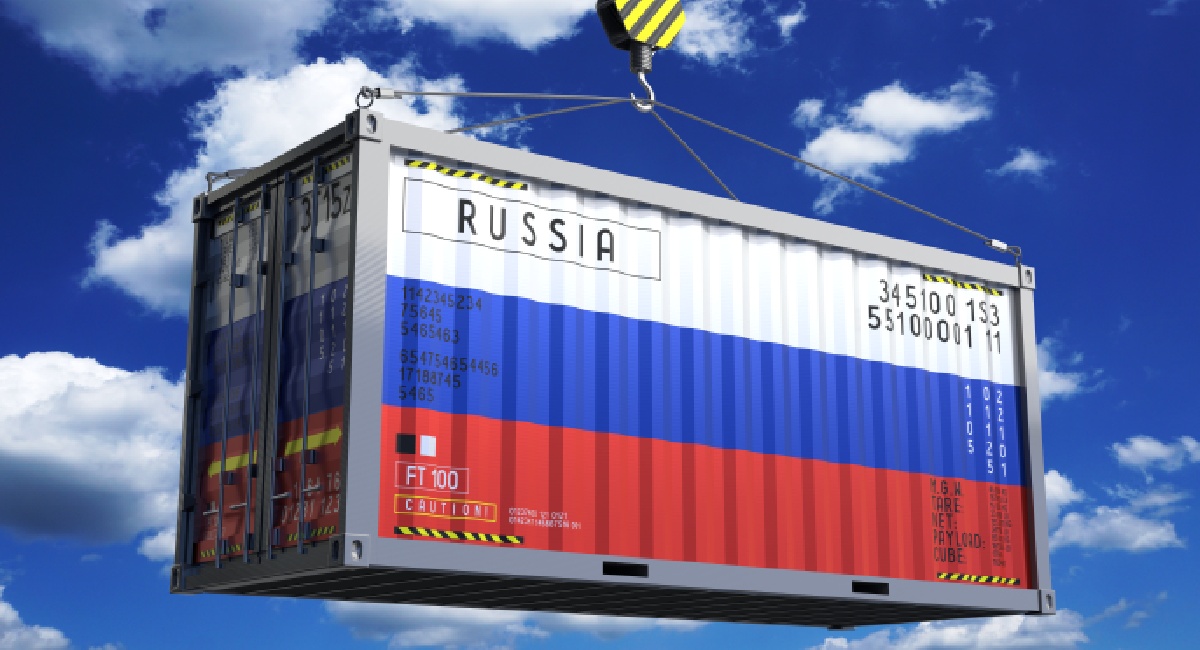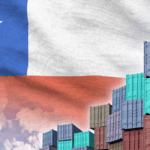Exporting to Russia represents a strategic opportunity for many businesses. However, navigating the process of exporting to Russia today can be challenging due to specific regulations, trade restrictions, and evolving economic conditions. In this guide, we’ll cover the key aspects of exporting to Russia, including the procedures, required documents, and the most in-demand product categories.
How to ship goods to Russia?
Successfully exporting goods to Russia requires meticulous planning and a thorough understanding of customs regulations. To get started, it’s essential to partner with a reliable logistics provider experienced in the Russian market. Key considerations include:
- Customs procedures: Russia imposes specific duties and requires compliance certificates for many products. For instance, the Customs Union Declaration of Conformity (TS) is mandatory for items like mineral fertilizers and household chemicals. These certifications confirm that your products meet local market standards.
- Transportation methods: Goods can be shipped by road, sea, or air, each with its own advantages and challenges. Road freight is ideal for full loads, offering flexibility, while air freight is suitable for urgent or high-value shipments. Sea freight, on the other hand, is a cost-effective choice for large volumes but requires longer transit times.
- Packaging and documentation: Durable packaging is essential to protect your goods during transit. Equally important is the preparation of accurate documentation, including detailed commercial invoices, packing lists, and the specific certificates required by Russian customs. Incomplete or incorrect paperwork can lead to significant delays.
Working with experienced freight forwarders simplifies logistical and bureaucratic complexities, reducing the risk of costly mistakes.
Which goods are restricted for export to Russia?
Export restrictions to Russia have increased, especially in response to international sanctions. Prohibited or regulated items include:
- Advanced technology products: High-tech items like quantum computers, advanced semiconductors, electronic components, and software are banned to curb technological advancements in strategic Russian industries.
- Dual-use goods: Items with both civilian and military applications, such as drones, drone software, and encryption devices, are heavily regulated to prevent misuse in military contexts.
- Luxury agro-food products: High-value food items like caviar, truffles, and premium alcoholic beverages are subject to restrictions, especially if they exceed specific economic thresholds.
- Luxury goods: The EU has imposed bans on exporting luxury items to Russia, including high-end cars, watches, and jewelry, targeting the country’s economic and political elites.
- Industrial equipment and energy technologies: Export restrictions also apply to equipment and technologies used in defense, security, and energy industries, aiming to weaken critical sectors of the Russian economy.
To ensure compliance with these regulations and avoid legal complications or customs delays, it is essential to rely on knowledgeable shipping partners who stay up-to-date with international trade rules.
What can you export to Russia?
Despite challenges, Russia remains a vast and diverse market for several industries. While geopolitical conditions have impacted exports, certain product categories continue to see strong demand:
Exporting food products
Italian food products, such as pasta, preserves, and cheeses, remain highly sought after in Russia. To access this market, exporters must comply with stringent certification standards, including specific conformity tests for many food items.
Exporting wine
Italian wine continues to enjoy strong demand due to its exceptional quality. Successful wine exports to Russia require complete and accurate documentation, including certificates of origin and chemical analyses. Premium wines, however, are subject to stricter regulatory scrutiny.
Exporting olive oil to Russia
Italian olive oil is highly popular in Russia. Exporters must ensure that labels are translated into Russian and that all products comply with updated customs regulations. Certifications of organic quality may also be required for specific product lines.
Exporting furniture
Italian furniture and design remain highly valued in Russia. Given current import-export restrictions, companies should explore local distribution channels or establish strategic partnerships to overcome potential logistical and legal barriers.
Shipping goods to Russia from Italy
What is the current relationship between Italy and Russia?
While geopolitical tensions have impacted trade between Italy and Russia, their commercial relationship remains significant for certain industries. Historically, Italy has been one of Russia’s main European trading partners, although sanctions have restricted some activities.
What does Italy export to Russia?
Key exports from Italy to Russia include:
Agro-food products and beverages: Select Italian food products continue to have a presence in the Russian market, provided they meet current regulations.
Machinery and industrial equipment: This sector remains subject to strict controls to ensure compliance with international sanctions.
Fashion and accessories: While luxury goods face significant restrictions, certain items remain in demand.
Furniture and design products: Exports in this sector are also regulated to ensure alignment with trade sanctions.
What documents are required to export to Russia?
Essential paperwork for exporting goods to Russia
To export goods to Russia, you’ll need to prepare the following documents:
- Commercial invoice: This must be detailed and compliant with international standards.
- Packing list: Includes an accurate description of the goods being shipped.
- Compliance certifications: Mandatory for many products, particularly those in the technology and industrial sectors.
- Customs documentation: Required to declare goods and calculate duties.
- Sanitary and phytosanitary certificates: Essential for food products.
In conclusion, exporting to Russia offers numerous opportunities but also presents challenges due to its complex regulations and dynamic trade landscape. Collaborating with industry experts and reliable partners ensures a smoother process, enabling businesses to navigate bureaucracy efficiently and stay compliant with evolving regulations.
For tailored support and expert advice on your international shipments, don’t hesitate to contact us.










